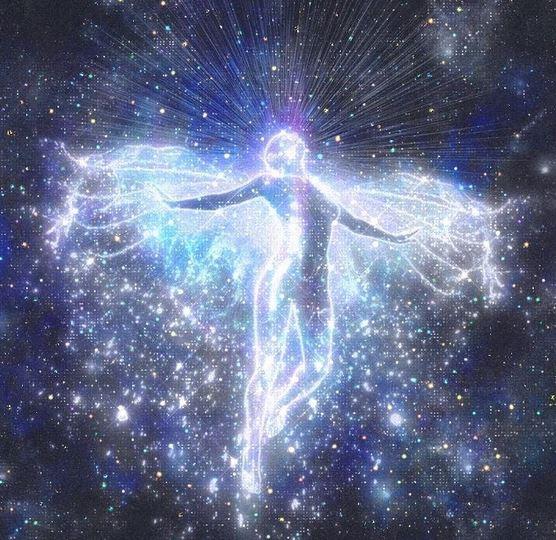Seele

The soul is usually thought of as the non-physical, immortal essence of a person—the part of you that makes you you, beyond just your body or brain.
🛐 RELIGIOUS VIEWS
✝️ Christianity
-
The soul is immortal and given by God.
-
It's the true self, and after death it goes to Heaven or Hell based on one’s actions and faith.
☪️ Islam
-
The soul (called ruh) is also eternal.
-
After death, it faces judgment and will be rewarded or punished in the afterlife.
🕉️ Hinduism
-
The soul is called Atman—the eternal, unchanging self.
-
It is reincarnated through many lifetimes until it reunites with Brahman (universal soul).
☸️ Buddhism
-
Slightly different: it denies a permanent soul (anatta doctrine).
-
Instead, it teaches that we are a bundle of constantly changing elements, and what carries on is a flow of karma, not a fixed soul.
✡️ Judaism
-
The soul (neshama) is divine in origin and returns to God.
-
There are multiple levels or aspects of the soul in some Jewish mysticism (like in Kabbalah).
🔮 PHILOSOPHICAL IDEAS
🧠 Plato:
-
Believed the soul is immortal and exists before and after the body.
-
Divided it into three parts: reason, spirit, and desire.
⚖️ Aristotle:
-
Saw the soul as the "form" of the body—it makes a living thing alive, but doesn’t survive death.
🧠 Modern Views:
-
In psychology, the soul is often treated metaphorically (as "the mind" or "consciousness").
-
Some scientists reject the idea of a soul altogether, seeing human experience as the product of brain activity.
🚨 IN SCIENTOLOGY
If we connect this back to Scientology:
-
The soul is called the thetan.
-
It's immortal, trillions of years old, and independent of the body or mind.
-
The goal of Scientology is to free the thetan from trauma and regain its full power and awareness.
🎭 POETICALLY SPEAKING
In art, poetry, and everyday speech, "soul" is often used to mean:
-
Passion ("He sings with soul.")
-
Essence ("The soul of the city.")
-
Compassion or empathy ("She's a kind soul.")
🕰️ ORIGINS OF THE IDEA OF THE SOUL
The idea of a soul has appeared almost universally across ancient cultures, usually as a way to explain:
-
What happens after death
-
Dreams and out-of-body experiences
-
The "inner self" or consciousness
🌍 Ancient Civilizations:
Egyptians
-
Believed in multiple "souls" or spiritual components:
-
Ka (life force)
-
Ba (personality/soul that could travel in the afterlife)
-
Akh (immortal spirit)
-
-
The Ba could leave the body and return—very close to the astral body idea.
Ancient Greeks
-
Plato: The soul is eternal, exists before birth, and returns to the realm of forms after death.
-
Pythagoreans: Taught reincarnation and that the soul could leave the body during sleep or trance.
-
Neoplatonists: Especially Plotinus—believed the soul could ascend to higher spiritual planes.
Hinduism & Vedanta
-
The soul (Atman) is eternal and divine, reincarnating through lifetimes.
-
Describes multiple bodies:
-
Stula Sharira (gross/physical body)
-
Sukshma Sharira (subtle/astral body)
-
Karana Sharira (causal body)
-
These layers match closely with esoteric and occult concepts of the soul having multiple "vehicles."
🌌 THE ASTRAL BODY: THE SOUL IN MYSTICISM & OCCULTISM
🔮 What is the Astral Body?
-
The astral body is a non-physical, subtle energy body that coexists with the physical body.
-
It’s often described as:
-
The vehicle of consciousness during dreams
-
What travels during out-of-body experiences (OBEs) or astral projection
-
The "soul-body" that survives after death (before reaching higher planes)
-
🌒 Occult & Esoteric Sources
Theosophy (19th–20th c.)
-
Founded by Helena Blavatsky.
-
Described multiple "bodies" or layers of being:
-
Etheric body
-
Astral body (emotions, dreams)
-
Mental body
-
Spiritual body
-
-
The astral plane was a real realm of existence, inhabited by souls, spirits, and entities.
Hermeticism & Western Mysticism
-
Influenced by Greek, Egyptian, and early Christian ideas.
-
Emphasizes the idea of the soul leaving the body and journeying through heavenly spheres.
Kabbalah (Jewish Mysticism)
-
Describes five levels of the soul:
-
Nefesh (vitality)
-
Ruach (emotion/spirit)
-
Neshamah (intellect)
-
Chayah (life-force)
-
Yechidah (oneness with the divine)
-
Some interpretations align the middle levels with the astral realm.
Gnosticism
-
Taught that the soul is a divine spark trapped in a material body.
-
The soul must ascend through the astral spheres to return to the divine source.
💫 Astral Travel & Modern Belief
Many modern spiritual movements and "New Age" thinkers believe in the astral body:
-
Astral projection is said to be a practice where the soul or consciousness detaches and travels to other realms.
-
Often described as floating above your body, moving through walls, meeting guides or spirits.
Even some paranormal research and near-death experience accounts reference this idea, where people describe leaving their physical form and observing events from above.
TL;DR
-
The soul as a concept came from a universal human need to understand consciousness, death, and the "inner self."
-
The astral body is a specific idea from mysticism and esotericism, referring to a subtle, spiritual body that can leave the physical body and journey through non-physical realms.
-
It plays a big role in systems like Theosophy, Hindu metaphysics, Hermeticism, and New Age spirituality.

